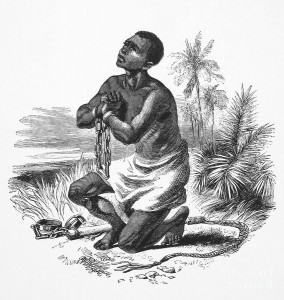The field of Black Studies consists in ‘tracking the figure of the unsovereign’ (Chandler, 2013: 163) in order to meditate upon the paramount question: ‘What if the problem is sovereignty as
such’ (Moten, 2013)? Abolition, the political dream of Black Studies, its unconscious thinking, consists in the affirmation of the unsovereign slave – the affectable, the derelict, the monstrous, the wretched – figures of an order altogether different from (even when they coincide or cohabit
with) the colonized native – the occupied, the undocumented, the unprotected, the oppressed. Abolition is beyond (the restoration of) sovereignty. Beyond the restoration of a lost commons through radical redistribution (everything for everyone), there is the unimaginable loss of that all too imaginable loss itself (nothing for no one). If the indigenous relation to land precedes and exceeds any regime of property, then the slave’s inhabitation of the earth precedes and exceeds any prior relation to land – landlessness. And selflessness is the correlate. No ground for identity, no ground to stand (on). Everyone has a claim to everything until no one has a claim to anything. No claim. This is not a politics of despair brought about by a failure to lament a loss, because it is not rooted in hope of winning. The flesh of the earth demands it: the landless inhabitation of selfless existence. Jared Sexton – The Vel of Slavery.

